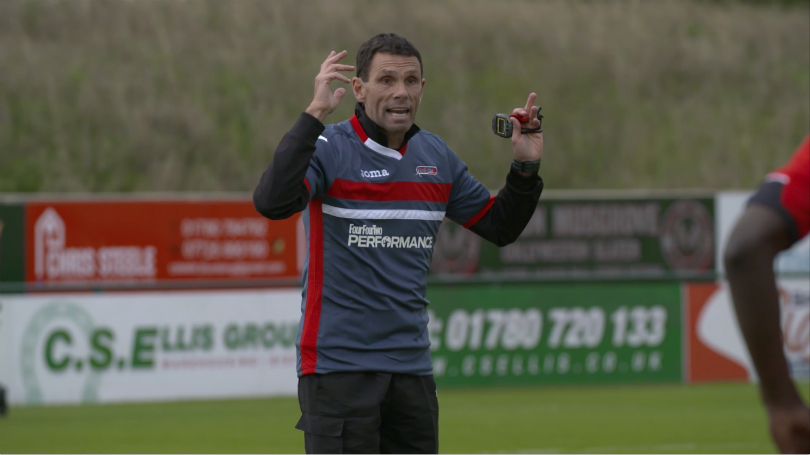How to organise your team
Gus Poyet’s tips on how to set your team up for success at Sunday League level

Do you play Sunday league football and think you’ve found the perfect system to outfox the opposition? Catenaccio maybe, total football or a spot of tiki-taka?
It sounds good in theory but, as former Premier League manager Gus Poyet explains, it’s best to keep things simple at first.
Tiki-taka wouldn’t be suited to a muddy English pitch in the middle of winter, so don’t be over-ambitious with your tactics. Concentrate on getting the basics right and build from there.
Team shape is important. Don’t get dragged out of position by the opposition by being attracted to the ball too easily.
If you’re a central defender, don’t spend half of the game chasing players in the channels and leaving gaping holes in the middle of the pitch.
If everyone in the team does the basics correctly, then you’ve given yourself a chance of winning matches.
Recommended for you:
Harry Kane: Understanding tactics
How to explain tactics
Watch and learn
The camera phone coach
Gareth Southgate: Simplifying tactics
Gus Poyet is one of a number of guest coaches who deliver sessions for students at the FootballCV Academy in Stamford. For more information visit www.footballcvacademy.com
Get FourFourTwo Newsletter
The best features, fun and footballing quizzes, straight to your inbox every week.

Chris joined FourFourTwo in 2015 and has reported from 20 countries, in places as varied as Jerusalem and the Arctic Circle. He's interviewed Pele, Zlatan and Santa Claus (it's a long story), as well as covering the World Cup, Euro 2020 and the Clasico. He previously spent 10 years as a newspaper journalist, and completed the 92 in 2017.
